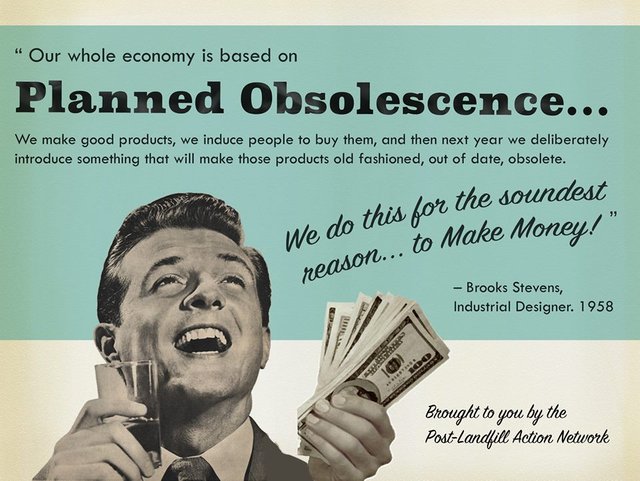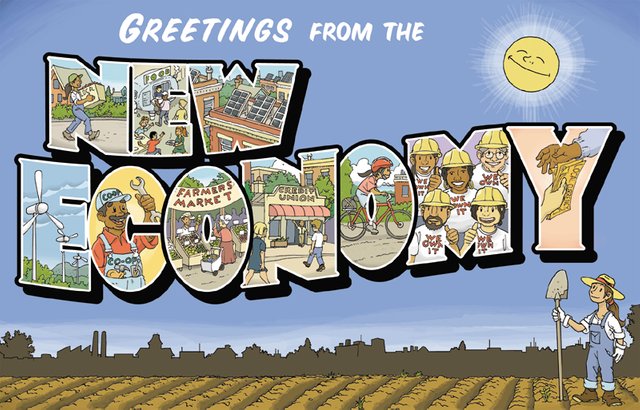The End of Ownership in the Modern Century
We love to own things as humans, to place our claim upon something. It feels empowering and gratifying to see our hard work materialize in a tangible asset, that provides material wealth to our lives. Even if this is just our new washing machine it is a clearly optimal feeling to provide ourselves with a more convenient way of living, but will this last forever? Of course we won't just retract to the wildlands with recognition in our minds to adapt to primal living, but will it one day be to much of a burden upon our beautiful planet to own things, and consistently produce new things to own?

This is both an economical and philosophical question plaguing the fatiguing manufacturing and retail industries of many products, and has spurred some pretty creative solutions to be derived from great minds of our time. But before we explore we have to know why owning items is damaging to the ecosystem. And it is not the problem of the people who own products, but of the companies that force feed low quality replications of face lifted technologies to customers every new fiscal quarter. And it all begins with the way that products are designed from the beginning.
Planned obsolescence means that now most products are designed to break after certain periods of time or when new software is implemented to technologies, constant innovation of everything has drastically limited lifespans of products from decades to mere months and years. Products are built to last only until the new one releases, and is used as a reciprocal revenue model encouraged by fear of insignificance in consumers to constantly update their items to the new thing. This has created incredible amounts of waste and environmental damage, while inhibiting true innovation to take place and ensuring that quality is the lowest of priorities. Of course this keeps unit and production costs low but sales high as customers constantly purchase the new model of car or phone to remain relevant, all the while old products are thrown away, not effectively recycled or anticipated to be used for renewable projects.

This culture of here today gone tomorrow is not something that can last sustainably, and while we are guests on this earth it's time that we start to democratize the way that we use products and consider how they are created and disposed of. A new economic principle has been born that demands to reverse the way in which we consume products in the future, and the ways in which companies develop and produce them. This new principle states that instead of buying a product to own it, we will now rent it to use it. This may seem socialistic at it's most omnipotent but it makes very good sense as for companies to maximise their profits they will have to create products of high quality that last very long amounts of time, not low quality with short lifespans. Not only will this relieve customers of the expense of products in the long run but will also allow companies to refine their manufacturing processes and decrease market pressure that demands constant new products be devised. Helping to encourage them to make the best of what they can right now, instead of drip feeding it throughout multiple product lines that create excess waste and hyper obsolescence.
One of the obvious advantages of this innovative economic model is the fact that material consumption for product manufacturing will significantly decrease, lowering the costs of creation and also the damage to the environment. This can also be emphasized by using Systems Theory to utilize the existing materials of your current product to make the new one, minimizing waste and encouraging true renewability. This can also make for more creative and innovative solutions to be created as well. As current products are designed to be obsolete within years companies make new models of an existing product to drip feed the new technologies they already had initially had to maximize profit. This can be prevented using this economical model and instead all of the most innovative and futuristic of adaptions can be made to the one product to ensure longevity and quality as these will be the factors catalystic to effective revenue models. This spurs more ingenuity and innovation to be employed in research, design and creation increasing job, product and environmental quality.

Of course not owning something is kind of hard to fathom when it comes to your TV or cooker, but if it encourages corporate responsibility to the environment and also generates higher quality, long life products then it is beneficial to all of us. Corporate responsibility is created by making companies dependent on quality and longevity for profitability and issuing any repair costs upon them, ensuring that they make renewable and high quality products. This does pose the risk that companies and not people own the products that they use and those who can't pay will be relinquished of their rented assets, but as this model will be extremely more cost effective this is unlikely. For example a man in Germany complying with a test of this model can use a £1000 fridge for £10 pm and be assured that it will last for 8-10 years with free maintenance, instead of buying outright a current £100 fridge that will maybe last 4-5 years.
People already increasingly don't own the cars they drive, homes they live in or the phone they use, so it won't be all too radical for consumers. But in a world increasingly focused on digitization with the creation of the IoT, virtual reality and artificial intelligence humans role on the earth is going to have to become more existential if we are to find purpose in life. As ever more jobs dissapear to automation and once physical things like banks become intangible and digital we have top focus ourselves in finding meaning within ourselves and not what we own. Materialism will still inevitably exist but with a more sustainable approach, and the recognition of the products we use as a creation from the very planet we inhabit. So with this is mind will products become respected as a renewable entity not to be wasted, and will our time dedicated to pursuing the intangible and not the material? It will be interesting to see if companies en mass adopt this principle to ensure the longevity of our planet as well as the things we buy, and to what lengths we as humans will go to find purpose in this new and immaterial world we are gradually creating.
Howdy! Senor @blockchainboom. have a nice day. Gracias